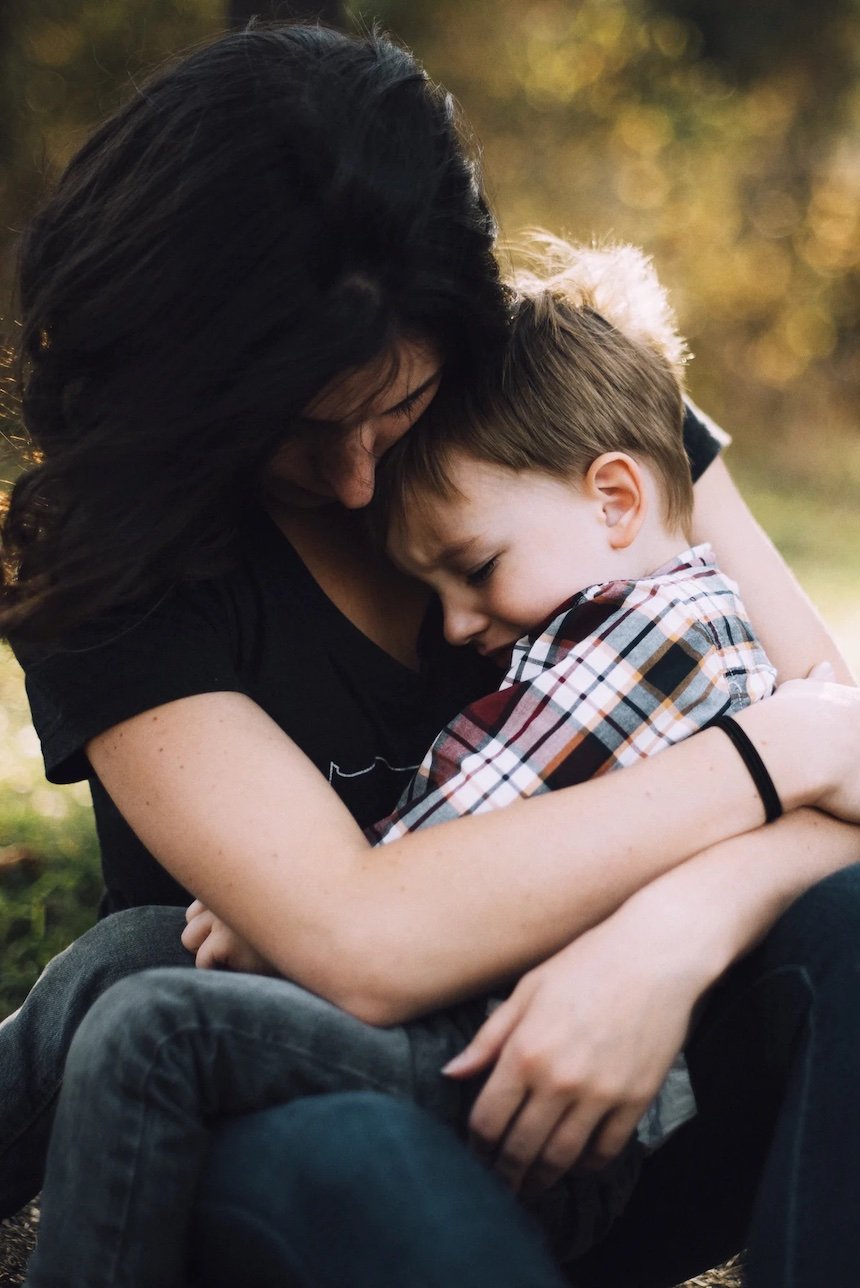Big Emotions And The Behaviours That Comes With It

Children and young people need adults to help them process their emotions.
When we are dealing with a dysregulated child we can often become distressed ourselves; we may feel worried about them, hurt, angry, defensive or even fearful. If we can first check in with ourselves by taking a short pause and deep breath so we can ensure that we respond rather than react, the outcome can be far more peaceful and supportive.
The behaviour that we are seeing; whether it is screaming and hitting, or withdrawing completely, is because our young person is finding it difficult to express what is going on for them.
As caregivers we have an opportunity here to teach our children that our emotions, even angry ones, are healthy, and together we can find a healthy way to let it out. For example, we can explain or model that while it is ok to feel angry, it is not ok to hit anyone because you are feeling this emotion. Instead we can hit a big soft toy, stamp our feet or scream into a pillow.
Once this big emotion has passed, we can then reconnect to find out the underlying cause.
As a Therapist who is also an autistic parent to two autistic and ADHD children (aged 5 and 9, one with PDA), co-regulation has been an ever changing and steep learning curve. When I first began using co-regulation, I felt like I should be able to do it easy! I’m a therapist I know this stuff! I was a little over confident.
Navigating the teen years can be challenging for both parents and teenagers. As they strive for independence and begin to form their own identities, communication can sometimes break down, especially during tense moments.
However, with the right strategies, you can improve communication, build understanding, and foster a stronger connection with your teen.
Here are some key tips to help you support healthy communication with your teen, even when disagreements arise.
Bullying is a concern for many us as parents/caregivers, whether it’s our child that is experiencing it or engaging in it. It can have long-lasting effects on a child’s emotional and mental wellbeing. As a parent/caregiver, knowing how to respond effectively can make a significant difference in helping our child navigate these challenges.
Art is not just a creative outlet for children; it’s a powerful tool for expression that can unlock numerous developmental benefits. Through drawing, painting, sculpting, experimenting with materials and other forms of art, kids explore their feelings, ideas, and perceptions of the world in ways that words sometimes cannot capture. This creative expression plays a significant role in shaping their emotional, social, cognitive, and even physical growth.
In recent years, the concept of the mind-body connection has gained quite a bit of attention. This relationship has been recognised for centuries across various cultures and medical traditions, but western medicine has focused more on the physical aspect of health and treated the brain and body quite separately.
We continue to learn more about this mind-body connection and understand that the mental wellbeing of ourselves and our children is just as important as physical health, and the two are inextricably interlinked.
We all aim for a smiling face and a wave as our kids walk into school, but that’s just not always the case. It’s normal to experience a struggle day sometimes, but when it becomes frequent, and intense emotional school refusal becomes your normal, our goal posts need to shift.
The festive season is often perceived as a joyous time filled with warmth, family, and special traditions. However, for some children, particularly those with high anxiety, sensory processing issues, developmental challenges, or neurodiverse conditions like autism spectrum disorder (ASD), the holiday season can bring about overwhelming stress and lead to more emotional meltdowns.
Understanding the reasons behind these reactions is very important in order to support our children and create a more peaceful environment during this busy time of celebration.
Grabbing toys off other kids, finding it hard to wait their turn, interrupting others during conversations, rushing into tasks without listening to directions and frequently learning through the mishap that has already happened. Sounding familiar? Our children, along with their beautiful curiosity, boundless energy and fun are also very impulsive. As frustrating as it may be for us parents and caregivers, it’s actually very normal at certain ages, so understanding where this impulsivity comes from and gaining a broader knowledge on what to expect throughout our child’s development, will give us the awareness we need to allow us to support our child in gaining impulse control, or acknowledge when we need professional support.
When our children were babies, we may have felt some impatience for them to say their first word or start crawling or walking, but we knew we had to continuously support them until they were ready. The same can be said for social and emotional development; sometimes we may find that we’re expecting them to show more empathy, share with a friend, or be ok with simple changes. We might also become frustrated when they seem to say ‘no’ to everything, don’t respond to us straight away, have to win every game, or insist that they know best.
Having some understanding of the developmental goals that our children are working towards can give us the insight we need in order to respond and support in a way that is more appropriate, as we don’t take these behaviours personally.
As parents, we often find ourselves putting our children's needs above our own. We do this on a daily basis often leaving no time to do anything nourishing for ourselves.
While this selflessness is necessary at times when our children are struggling, chronically neglecting self-care can have unintended consequences.
Art Therapist
Dip Counselling Dip Art Therapy
Living and working on Wathaurong country










